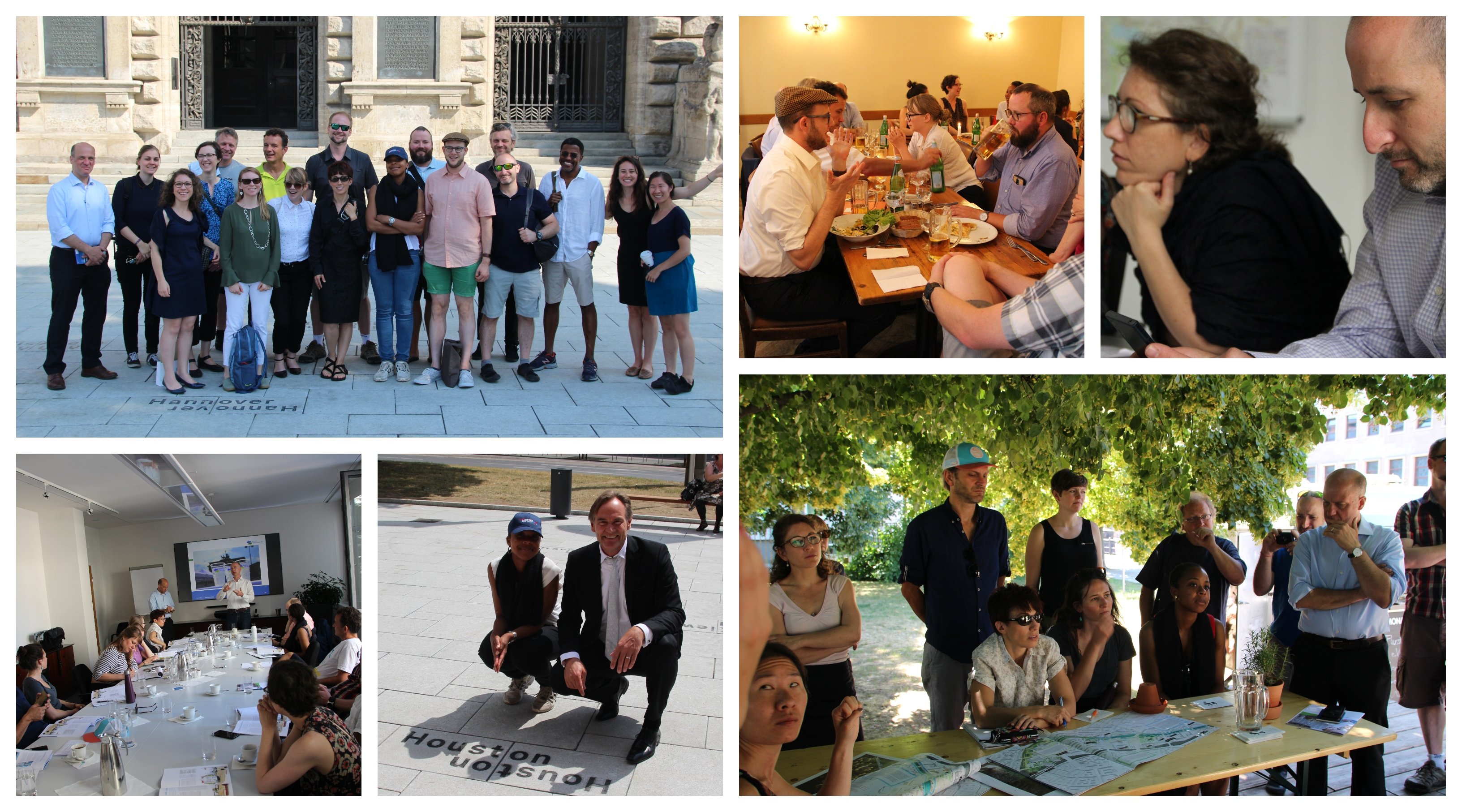Building on the American Council on Germany’s history of best practice exchanges among urban affairs experts, the ACG is conducting a two-part immersive program on sustainable urban development. This initiative is designed to focus on the growing importance of cities in promoting strong transatlantic relations.
 Participants have the opportunity to learn how their counterparts on the other side of the Atlantic are tackling sustainability challenges, including but not limited to urban mobility, affordable housing, renewable energies, and resource scarcity. The Sustainable Urban Development Study Tour allows groups of urban professionals to receive an in-depth look at urban planning and city management as they improve the lives of their citizens and plan for the future.
Participants have the opportunity to learn how their counterparts on the other side of the Atlantic are tackling sustainability challenges, including but not limited to urban mobility, affordable housing, renewable energies, and resource scarcity. The Sustainable Urban Development Study Tour allows groups of urban professionals to receive an in-depth look at urban planning and city management as they improve the lives of their citizens and plan for the future.
The ACG selected approximately eight Americans and eight Germans to take part in the two-part study tour. During each segment, the ACG arranges a series of meetings with city officials, nongovernmental organizations, and think tanks to discuss local challenges and how to tackle them. Participants travel as a group to two or three cities in each country, to gain different perspectives on the concerns that cities are facing today.
Participants continue the dialogue and engage with one another between the two trips and long after the end of the program. Upon completing the study tours, participants submit an analytical report on their findings.
Atlanta, Georgia and Detroit, Michigan
In the Spring of 2020, the American Council on Germany planned an immersive Study Tour on Sustainable Urban Development in Atlanta and Detroit with German and American experts and practitioners who had met in Düsseldorf, Heidelberg, and Mannheim in December 2019. Just days before the exchange in the United States was scheduled to start, the Covid-19 pandemic brought the planning and implementation of the program to a halt. Finally, after a nearly three-year hiatus, the study tour was able to take place from October 9 to 15, 2022.
Düsseldorf, Heidelberg, and Mannheim
As part of the Sustainable Urban Development Study Tour, from December 8 to 14, 2019, eight urban affairs experts from the United States and seven from Germany explored how cities are addressing common challenges in Düsseldorf, Heidelberg, and Mannheim. Through a range of meetings and site visits, the cohort engaged in conversations at the city and state levels.
On the evening of Sunday, December 8, the program began with dinner with the Lord Mayor of Düsseldorf Thomas Geisel (1992 Young Leader). Outlining the challenges facing his growing city, Mr. Geisel said that one of the major issues is affordable housing within the city. The issue of affordable housing was a common theme throughout the week.
Pittsburgh, Denver, and Commerce City
The group gathered for the second phase of the program – in Pittsburgh and Denver – from October 7 to 13. There they met with officials and experts working to improve the lives of residents as they continued to build upon their new transatlantic network.
On the evening of October 7, the group, which consists of Americans and Germans working on urban issues and sustainability, gathered around a dinner table in the South Side of Pittsburgh after nearly five months since their last meal together in Berlin. With the atmosphere of a family reunion, the group spoke about their latest projects, new developments in their cities, and the lessons they had learned during the first part of their study tour. With their bonds firmly cemented, the participants embarked on an intense week of meetings.
Berlin and Leipzig
In late May and early June, 2018, the American Council on Germany launched an exciting new pilot project to look at sustainable urban development. At a time when the transatlantic relationship is under strain, the ACG convened experts in urban affairs from the United States and Germany for a weeklong, in-depth fact-finding mission to Berlin and Leipzig. From May 27 to June 2, the Sustainable Urban Development Study Tour brought together 17 urban affairs experts working at the state and local levels to discuss mobility, housing, water, structural change, demographic trends, and sustainability.


